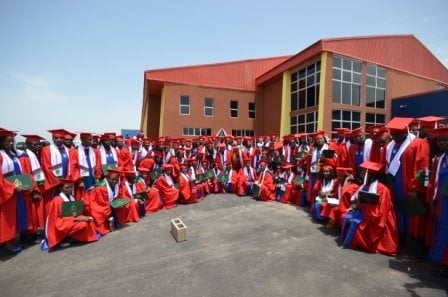 |
| Source: bit.ly/1prtwIL |
Do you think that education is mandatory for every
child in the modern society? Can education truly help a child to face the
challenges of the future and achieve success?
The answer is a definite yes. Education is simply
the process of acquiring knowledge that helps a person to mentally develop in
order to adapt to the changing dynamics of the modern world. Your educational
qualification will help you in securing a good job, advance your career and
achieve success in life. However several under-developed nations lack proper
infrastructure for providing its civilians with the opportunity to get basic formal
education.
Nigeria is among those countries where formal
education for the youth has become a serious concern. Although the most of the
state governors are trying hard to cope with the issue, but due to lack of qualified
teachers and shortage of adequate schools the education system has taken a toll
in the last few years.
However, there is still hope as several NGOs (Non-Government
Organisations) are working towards developing the Nigerian education system.
Recently, CEE-HOPE, a Nigeria based NGO, has granted scholarship to 10 children
in Makoko, a slum situated in Lagos. This grant will help the children to get free
primary education. Makoko has one of the highest rates of children who are not
formally educated.
According to a UNESCO report published in June 2013,
Nigeria has the maximum unschooled children in the world and is estimated to be
around 10 million. This situation will surely have some serious social
implications in the future which will adversely affect the economy of the country.
| Source: bit.ly/1prt6SS |
Whanyinna Nursery and Primary School is among the
most prominent schools in the region. The institute was donated and constructed
in 2009 by the Yatch Club, a group of foreign visitors troubled by the
illiteracy rate in Makoko. The school has a total of 215 students and one of
the very few English medium schools.
The generous offer from CEE-HOPE Nigeria has not
only encouraged the teachers and students, but has also pleased and elated the
parents as most of them are unable to pay the N30 daily school fees.
CEE-HOPE (Centre for Children's Health Education,
Orientation and Protection) is a Nigerian NGO that works for the betterment of children’s
health, rights, welfare and overall development. They are striving to help the
children who reside especially in the rural areas and the urban slums. Mrs.
Betty Abah, the Executive Director of the organisation was motivated to reinstate
hope to the child of the region with their Harbingers of Hope Scholarship which
is aimed for the needy and impoverished children.
 |
| Source: bit.ly/1prtwIL |
The Harbinger of Hope Scholarship aimed to support 30
children in the pilot programme and the initial batch included 5 poor students from
Ikotun. The 2nd batch of scholarships under the Harbingers of Hope
scholarship programme was given to the students in Makoko. The next batches
will be granted to schools in the Otto and Badia communities.
The scholarship
includes expenses related to school uniform, reading and writing materials, school
fees and other charges. The NGO has made this their basic agenda for their welfare
and scholarship programmes for needy children. Even though the nation has
plenty of resources, it has not been able to nurture the potentials of its young
population. Mrs. Abah also aims to diminish the numbers of unschooled children
with such gestures.
CEE-HOPE wishes to eliminate the problems related to
illiteracy and develop these children for a better future. It is only through
proper education that the children will be open to learning new skills and
develop the willpower to face the challenges of the ever changing world. The
NGO plans to grant scholarships to even more students in the region and grow
the number of beneficiaries gradually.
Article Source: bit.ly/1rmo65I


